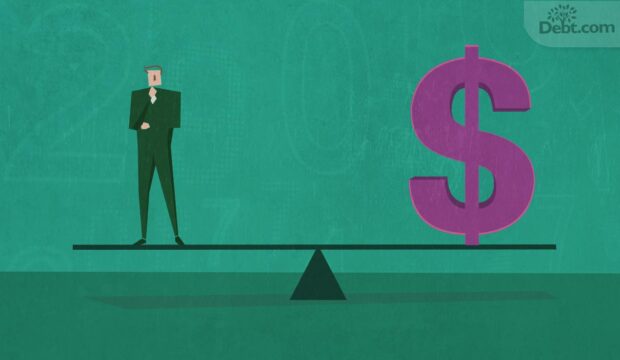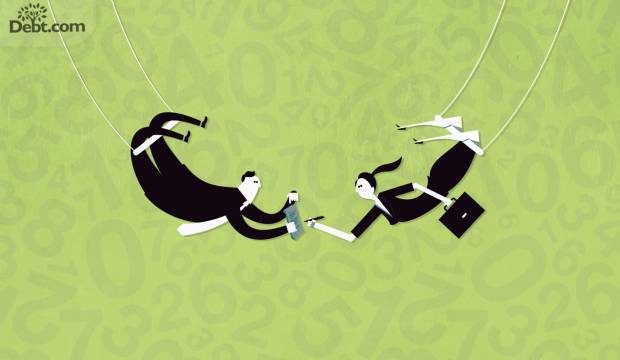Credit limits are essential to the credit card industry, as they determine the maximum amount of money a cardholder can borrow from the issuing bank. These limits vary widely depending on various factors, including the cardholder’s credit history, income, and other financial obligations. Credit limits can provide consumers financial flexibility but pose risks if not managed responsibly. In this article, we will explore the ins and outs of credit limits, from how they are determined to best practices for using them wisely.
What is a credit limit?
A credit limit is the maximum amount a consumer can charge on a revolving credit account, like a credit card. Each time you use a credit card for a purchase, it subtracts from your credit limit. The remaining total is referred to as your available credit balance.
Understanding the difference between credit limits and available credit balances is important. Your available credit changes frequently – as you make charges, it goes down, and as you make payments, it goes up.
By contrast, a credit limit is stable unless the credit card company decides to change it based on numerous factors.
How are credit limits determined?
Have you ever wondered how credit card companies decide whether you will have a $1,000 credit limit or a $10,000 limit on a new credit card? Maybe you earn a high income but usually receive a lower credit limit – or you don’t earn a huge amount of money but always receive a high credit limit when you apply for new credit cards.
When a credit card issuer approves your application, the company determines your credit limit – the maximum amount you’re allowed to charge – on the new card. If you charge over that limit, you may have to pay a fee or repay the over-the-limit amount immediately.
But what if your new credit card offers a lower credit limit than you think you deserve, or you want to take steps to start receiving a higher credit limit on your credit cards?
Credit score
Creditors look at your credit score and other factors to determine whether to approve or deny your credit card application. However, your credit score can also affect the credit limit you receive when approved for a credit card, according to the major credit bureau, Experian.
The better your credit score, the better your chances of the credit card issuer offering you a higher credit limit. “In general, many lenders find scores above 670 as indicating good creditworthiness,” according to FICO, which calculates credit scores based on various aspects of your credit information. “Typically, the higher your score, the lower the risk and the more likely creditors are to lend to you.”
Income and expenses
Just because you earn six figures annually doesn’t mean you will automatically receive a high credit card limit from the credit card company. Earning $10,000 a month may look good on paper, but even that high salary may not be enough to guarantee a generous credit limit if your monthly expenses eat up most of your income.
Fortunately, you have some control over your monthly income and expenses. If you’re barely scraping by, ask for a raise, more hours, or a promotion. Maybe secure a higher-paying job.
For all those expenses, consider what you can eliminate to decrease monthly costs. You could pause or cancel streaming or other subscriptions, for example. When your car is eventually paid off, hang on to it for a few more years instead of purchasing a new vehicle with hefty car payments.
Debt-to-income ratio
According to Experian, credit card companies weigh your debt-to-income ratio when deciding whether to approve or deny your credit card application. Generally, if your debt-to-income (DTI) ratio is more than 40%, that can indicate to the credit card company or another lender that you could have trouble paying all your other debts and the credit card’s monthly payment.
Here’s an example of how to calculate your debt-to-income ratio. Let’s say you earn $6,000 a month, and your mortgage balance, credit card debt, auto, or other loan payments come to around $4,000 a month. Your DTI ($4,000 ÷ $6,000 = 66%) is 66%, a high ratio that could prompt a credit card issuer to deny your application.
Even if the credit card company approves your application, a high DTI typically affects the card’s credit limit amount. To start receiving higher credit limits, or possibly even increasing the credit limits on the cards you have now, pay off as much debt as possible so your DTI is lower, making you seem like a better risk to credit card issuers.
Credit utilization rate
Your credit utilization rate – the ratio of revolving debt to your available credit – accounts for around 30% of your credit score, which also plays a big part in whether credit card companies approve your application. But that rate also factors into the amount of your credit limit.
That’s because credit card issuers want to make sure you can make timely payments, and the more recurring debt you have, the greater the chance of you missing a payment. With a high credit card utilization ratio, you also look like a candidate for getting into debt over your head, making late payments, or missing payments.
To improve your credit utilization ratio, start chipping away at your debts, hitting one at a time harder than the rest so you can make significant progress and stay motivated to pay off the remaining debt.
The economy
Economic conditions that are completely out of your control also affect your limits. Creditors increase limits and offer higher limits on new cards when the economy is good. Then, they decrease limits and offer lower limits on new cards when times are tough.
During the pandemic, credit card limits were decreased, especially on inactive or hardly used cards. The theory is that if you weren’t using your card regularly before an economic downturn, you’d only run up a balance because you were in dire financial straits.
Your history as a customer
When it comes to existing accounts and credit limits, if you keep your account in good standing, the creditor may increase your limit without your knowledge. A bank or credit card company may do so if you are a good customer who pays your bills on time and uses the account responsibly.
Sometimes, they may also ask you if you want your credit limit increased. You can decide to accept the offer and get a higher limit or decline it and keep your limit where it is.
Conversely, you could face a limit cut if you’ve had issues with your account. Credit card companies are not legally required to give you advance notice when they cut your limit.
The size of your cash deposit
With secured cards, the size of your cash deposit determines your credit limit because it acts as collateral for the lender. So, the sum of your deposit becomes your available credit limit.
However, a creditor may increase your credit limit of their own volition should you continue making on-time payments. Otherwise, adding to your security deposit would be a way to increase your credit limit.
How credit limits impact your credit score
Credit utilization plays a very important role in consumer credit scoring models. Both your overall credit utilization and utilization per card affect your credit scores. Experts recommend keeping your credit utilization ratio – your total debt divided by your total credit limit – under 30% overall and per card.
For example, let’s say you currently have three credit cards with a total credit limit of $15,000 combined. Each card also has a credit limit of $5,000. If your balance between all three credit cards is $4,500, you are in the correct 30% ratio. However, your credit score may suffer if only one of your cards retains the total $4,500 balance while the other two remain unused.
Then again, increasing credit limits can help you improve your credit score. How? When your credit limit increases, your credit utilization conversely lessens. So, getting a credit limit increase may be a good idea to improve your score as long as you can manage the debt.
For example, if you have a credit limit of $1,000 and your balance is $500, your credit utilization ratio would be 50%. Now, assume you get a $700 credit limit increase. This will cause your credit utilization to drop from 50% to 29%. As a result, your credit score will jump up a few points.
Find the right solutions and tools to fix your credit.
Can a credit card lower your limit?
I just learned my credit card limit was slashed by $5,000 – and I wasn’t told why. I could understand it if I lost my job during this pandemic, but I’m a nurse! I’m busier than ever, even earning overtime.
– Jane in Tennessee
My boyfriend got laid off, so I’ve been putting more charges on my credit card to help him out, but I make regular payments. My balances have creeped up, but I’m never late. I could really use that extra limit. What happened and is there anything I can do about it?
Howard Dvorkin, CPA, and Debt.com chairman responds…
Credit limits are like the weather. They can change at any time and without warning.
During the Great Recession and, more recently, the COVID-19 pandemic, many credit users were shocked to realize that their credit scores had dropped without warning. The drops had nothing to do with how they were managing their credit card debt. Instead, they were caused by credit card companies decreasing customers’ credit limits without notice. The practice is more common than you might think.
During economic downturns, people often rely on credit cards to pay outstanding bills and maintain their standard of living, especially if they’re dealing with unemployment or a loss of income. However, credit card companies will lower limits to protect themselves from customers who cannot pay. It’s a Catch 22, that right when you need higher limits and a strong credit score the most, your creditors cut that lifeline back.
I explain further in this video interview:
Click here for full video transcript
Hi, I’m Sydney Klein I’m sitting here with Howard Dvorkin, chairman and CPA of Debt.com. Welcome, Howard. Thank you so much, Sydney. We’re going to be talking about rising credit limits today.
Most people don’t know that you can get your credit limit actually lower in times of financial uncertainty. The two that come to mind uh the beginning of the Great Recession as well as the beginning of the pandemic. There was a lot of financial uncertainty with banks and credit card issuers lowering your available spend, and that’s because of a couple reasons.
During the Great Recession, banks were failing. There was a lot of liquidity problems and they had to lower the amount because frankly the federal regulators were telling the banks yo can’t can’t lend anymore. So all of a sudden they brought it down. During the pandemic, people weren’t working so it was a challenge.
Banks were sitting there saying well I know people need the limits but we may never get paid back. So we’re going to lower the available limits on a lot of people. The reason they do that, Sydney, is simple: they want to protect themselves, and they don’t want to get in trouble with the regulators.
They don’t also want to put people in a bad place that they’ll never get out of debt and by the way that’s a way distant third reason for lowering it. However lowering your balances is problematic on your available balances and the reason why it’s problematic is that there’s something called utilization scores and it’s part of the FICO score the Vantage score which is the score that creditors utilize to see if you’re a worthwhile candidate for lending money to.
The problem you have is f you had a $20,000 available limit and you ha $10,000 on a credit card that’s a 50% utilization score however if they bring it down. All of a sudden your utilization on that particular card is 100%, and that’s going to reduce your credit score significantly and impact you. So it’s kind of weird when you most need help; when you most need assistance; when you most need a bank, they’re not there for you.
I was told a long time ago, the only time a bank wants to do business with you is when you don’t need them and this certainly shows. The reality is that they’re going to protect their interest first and not really care what the consumer’s interests are. The other thing is they may reduce the available limits or even cancel cards because of certain professions, which is interesting.
They look at certain professions I’ve seen and say you’re a constructio worker and construction is way down in the country. There’s a blight of people that are available. They may terminate the the card. They you’re charging ability completely or again lower their risk. Now they can’t if you have a balance.
They can’t force you to pay it back because that’s a violation of the terms, meaning they can make you pay it back if you’re in default. All at once if you’re not in default you just keep making payments they may up your minimum payments but that’s not necessarily a bad thing for the consumer. However it may be a bad thing for the consumer’s monthly budget but you got to be very careful it’s a there’s a simple way around this: don’t charge anything and don’t carry balances.
Then you don’t have to worry about it but be prepared that during the times of financial crisis in this country don’t be surprised if some of these credit card granters reduce your available balance.
Do you think it’s really common that these companies are lowering their credit card limits? And what do people have to worry about in particular? Some of the credit card granters pull your credit once a year. American Express is known to do this to see if you may be perfect on paying them back. But you may be defaulting with your other creditors and if they see that you’re defaulting with your other creditors.
Their attitude is well we’re next on the list. We’re just going to shut the card down. Credit granters are not your friend. They’re there to lend you money at the highest possible interest rate they can and collect it over time.
The best customer for a credit card company is not the person that pays it back. It’s certainly not me because they don’t make a lot of money on me. They make money with the fees. When I use the credit card I pay my bills I pay my bills every month when they come in in full. The best customer is somebody who carries a balance and misses one or two payments where they could charge penalty interest too.
They could charge late fees and over limit fees that’s the credit card issuer’s dream client but thank God enough people look at our website, watch our podcasts and and learn a little. So that’s a good thing.
Yep jus one more thing that you can find on Debt.com that’ll give you advice. Advice is always free and it’s good stuff.
All right, and that is it for this week. Thank you, Howard. Thank you so much and again if you looking for additional free advice, please visit our website and check it out. We have surveys; we have white papers; we have all the information that you need.
Personal finance site Bankrate reports in recent years, credit limits have increased by 6.8%. The average American’s overall credit access jumped from $28,000 to $30,000.
What does that mean for you? Credit card companies are as worried about their bottom lines as you are. So, they’re changing their rules on the fly to protect themselves.
Credit limits aren’t legislated, so your card issuer can change yours whenever it feels like it. This happened even before the pandemic and inflation that followed. Most people didn’t have any reason to notice it.
How to raise your credit limit
The first remedy sounds too basic to work: Call your credit card issuer and ask for your limit restored.
That being said, you want to ensure you’re in the right position to approve the request. Asking for an increase at the right time can improve your chances.
This is more likely to work if you’ve had your card for a long time and have a good payment history. Like any other business, you’d be considered a good customer – businesses don’t want to lose customers.
You might not get your limit back to what it was, but you might get halfway there. That’s still pretty good for one phone call.
Other than that, you can try opening another card. Credit limits vary by issuer, so while Chase has been known to slash credit limits recently, others might be more patient.
However, the problem isn’t your credit limit. If you need that limit to make ends meet, you need professional help now.
You’ll bump up against that limit very soon if you use credit cards to make ends meet. Instead, call Debt.com and speak with a credit counselor who can help you cut your monthly payments.
When should you raise your credit limit?
A credit limit can increase spending flexibility while lowering credit utilization ratios, but it should only be considered at the appropriate time.
So, when is the right time? Ask yourself these questions…
Why do I want a higher credit limit?
If you’re considering asking for a higher credit limit on a credit card, it’s a good idea to check in with yourself on your reasons for wanting a higher credit limit and your ability to manage credit card debt.
Do you want to lower your credit utilization rate, the ratio of overall revolving credit debt to available credit? A higher credit limit can help. However, you could also achieve a lower credit utilization ratio by paying down your current credit card debt.
How much of a credit limit increase should I request?
Asking your credit card issuer to raise your limit from $3,000 to $6,000 is probablyn’t wise. Such a request could set off alarm bells, warning the credit card company of your household’s desperate financial times.
Ask for a smaller, realistic increase instead. Some credit card companies may allow you to specify an amount, while others will choose the amount you qualify for.
How will a hard inquiry affect my credit score?
When you ask for a credit limit increase, your credit card company will pull your credit report to check your credit score, payment history, and credit utilization rate. That action is known as a “hard inquiry,” and it may lower your score a few points for a short period but won’t affect your score long-term.
However, if you’ve applied for several credit cards or loans in a short period recently, another hard inquiry could have more of an impact on lowering your score.
Has my credit score improved since I opened the card?
One good reason to ask for a credit limit increase is if your credit score has improved since you applied for the credit card.
For example, if your FICO score was in the “good” (670-739) range a few years ago when you opened the card, and your score is now in the “exceptional” (800+) range, you probably have a better chance of receiving a credit limit increase.
However, factors also could influence approval. For instance, if a few of your credit cards are maxed out, that could work against approval for an increased credit limit.
How well do I manage credit card debt?
Do you want the increase to purchase an expensive appliance or travel? If so, be honest about your ability to manage debt before opening the door to managing more credit card debt.
Should I go online or pick up the phone?
Depending on the credit card company, you may be able to apply for a credit limit increase online. However, if you call your credit card company to request with a representative, you’ll have a better opportunity to make your case.
It’s a lot easier to reject a request online than when you’re talking on the phone with a person. Even if you anticipate a long hold time, consider getting on the phone to ask for a higher credit limit.
Can I be nice for 30 minutes?
As cranky and tired as you may be struggling with debt, ensure you’re courteous, kind, and patient with the person answering the phone when you request your credit limit increase. Chances are, a lot of irritable, anxious, and rude people call him or her all day long.
You’ll have a better chance of winning a receptive ear if you politely make your case and recognize that these are stressful times for everyone, including the credit card company representative.
The risk of higher credit limits
There are plenty of benefits with higher credit limits, but hardly anyone ever considers the downsides. A credit limit increase may not be in your best interest if your debt weighs you down. If you’re living paycheck-to-paycheck and using credit to cover daily expenses, a higher limit means you can fall deeper into debt.
And yes, your credit score may increase because of the increase, but this is only a temporary fix. Once new charges push you over 30% utilization again, your credit score will take a nosedive. And if you cannot keep up with your payments, the damage will worsen.
So, if you do not have a healthy spending budget, you will run up your credit balances and fall deeper down the debt rabbit hole. And the deeper it gets, the harder it becomes to crawl back out.
Having problems with debt? Please find the best solution to pay it off faster.
Credit limit FAQ
For starters, when you go over your credit limit, your credit card may be declined. However, your charge might go through if you opt in for over-limit protection programs. Over-limit protection programs let you make occasional over-limit purchases, but they can have significant consequences.
Beware that though your charge might go through, you would likely get hit with over-limit fees. You may also face higher interest rates or a lower credit limit. You might even see your credit score drop because of an increased balance. And if you make too many over-limit charges, your credit card company may close your credit account.
Generally, you should use no more than 30% of a credit card’s available credit limit. Using more than 30% will damage your credit score. If you have a $900 credit limit, using the 30% utilization rule, you would not want to have a balance of more than $300.
Credit card companies often automatically increase credit limits when a consumer demonstrates responsible usage. If you also use the card frequently for purchases while paying off more than minimum payments each month, a lender will likely offer you a higher credit line. Depending on credit standing, lenders and creditors may increase credit limits every six to twelve months.













